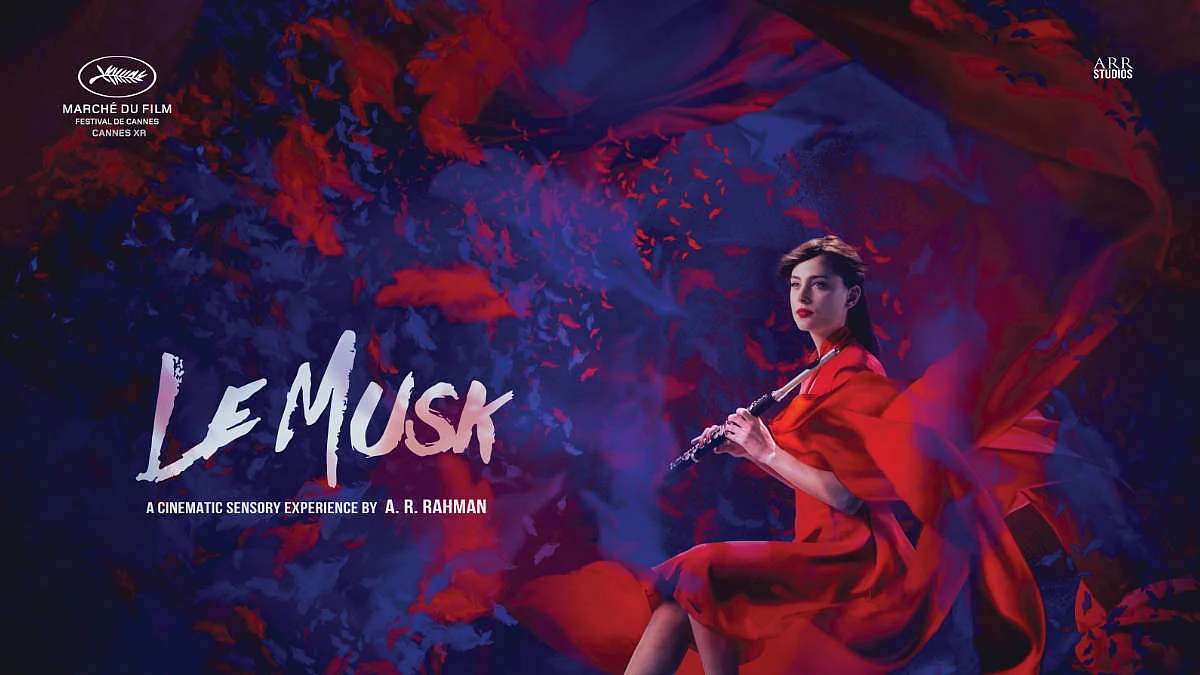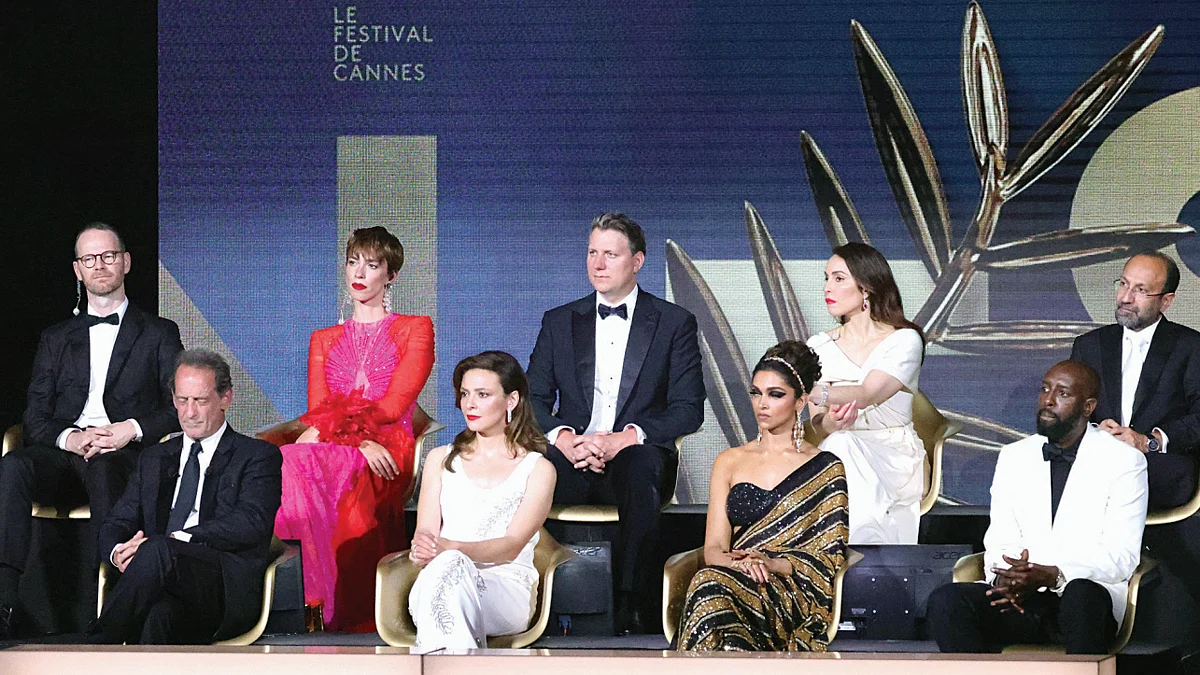Cannes, 2022: Films and film makers from South India make their presence felt
Bollywood this year has a subdued presence in Cannes as the world discovers there is more to Indian films than Bollywood

The first time I attended Festival de Cannes (Cannes Film Festival) in 2017, was also the Cannes debut for a globe-trotting superstar like A.R. Rahman. Back then he was at Marche du Film (Cannes Film Market) to launch a mega budget Tamil film Sangamithra, for which he was the music composer.
I don’t know what happened to that film, but I bumped into the music maestro again, two years later, giving a big push to his passion project—a VR (virtual reality) film called Le Musk—by unveiling its prelude in the market.
After the pandemic-induced gap years, the film premiered at Cannes XR section in collaboration with the Cannes Film Market. Rahman has directed as well as composed the music of Le Musk.
The 36-minute film claims to be an immersive, sensory musical experience centred on the flautist protagonist Juliet, played by Nora Arnezeder.
“Le Musk has been several years in the making with collaborators worldwide; we’ve aimed to create an unprecedented, subtle sensory cinematic surrealism. Creating a feature-length Cinema VR experience that pushes boundaries of storytelling and incorporates multiple senses was a guiding force for me. Aroma and music together bring warm memories subjectively for the audience,” said Rahman in a press release. Besides Arnezeder, it stars Guy Burnet, Munirih Grace and Mariam Zohrabyan.
It doesn’t just take you close to its Rome locations; the unique olfactory dimension of the film has scents linked with music and memory; every feeling in the film underlined with a distinct smell. The idea for it came to Rahman from his perfumeloving wife Saira.
I remember watching the teaser in 2019, sitting on special red egg-shaped, pod-chairs with the VR gear—a head mounted eye view and headsets. The big task now would be to build the required infrastructure for screening it worldwide, especially in India.

Rahman has not been the only one. Superstars of the South—Kamal Haasan, Pa Ranjith and R. Madhavan have all gunned for the market in a big way this year, while the big league Bollywood has been quietly subdued if not entirely absent, with the sole honour of Deepika Padukone being on the Palme D’Or jury.
Indeed, it has been the ladies from the Hindi film industry—Aishwarya Rai, Nandita Das, Vidya Balan—who have had the honour and privilege of representing India in the juries in the previous editions.
South stars have been cultivating Cannes for a while now. Dhanush was at the market in 2018 for the poster launch of his first international IndoFrench co-production The Extraordinary Journey of the Fakir. This year Kamal Haasan was at the market to launch the trailer of his multistarrer production—Lokesh Kanagaraj’s Vikram that also has Vijay Sethupati and Fahadh Faasil, besides Kamal Haasan himself in the main role of a cop.
Pa Ranjith formally announced the launch of Vettuvam (The Hunted), a unique combine of film and TV series, backed by his own Neelam Studios and Golden Ratio Films, the film production wing of Vistas Media Capital.
About a rural gangster figure who surrenders to the police to escape his blood thirsty enemies, it’s about how he deals with the prison system that is no less evil than the world outside. The film version will be out first, before the series. The shooting begins in the second half of this year.
The glamorous world of Cannes may have felt an unconventional platform for the socially, politically and culturally bristling cinema of Pa Ranjith, but Cannes is as much about politics as it is about the red carpet, potent enough to pitch the Dalit Cultural Movement in the same light as the Black Lives Matter and make the world take notice of inequities of the most viciously entrenched kinds.
Then there was R. Madhavan premiering his new film Rocketry: The Nambi Effect at the market screenings. The film, simultaneously shot in Tamil, Hindi and English, is based on the life of Nambi Narayanan, former scientist and aerospace engineer of the Indian Space Research Organisation, who was falsely accused of espionage.
With Akshay Kumar unable to make it to Cannes because of COVID, it was left to Nawazuddin Siddiqui to represent Bollywood on the coveted red carpet, along with the Union minister Anurag Thakur, Prasoon Joshi, Shekhar Kapoor and Vani Tripathi Tikoo. It was again for the South celebrities to display the show of strength—Rahman, Nayanthara, Pooja Hegde, Tamannaah Bhatia and Madhavan.
India is the official country of honour at the market, a first such initiative by Marche du Film. It is to mark 75 years of Indian Independence—Azaadi Ka Amrit Mahotsav—as well as 75 years of India’s diplomatic ties with France.
One of the officials in charge of the Indian representation said that a major thrust this year was to play on the diversity of Indian cinema instead of harping on Bollywood that has been traditionally and unfairly equated with Indian filmmaking in the West. “No Aamir or Shah Rukh Khan” has been an underlying dictum. Perhaps also underlined by the pan Indian success of Pushpa, RRR and KGF 2 and the hundreds of crores getting raked by them, the questionable quality of these films and their terrible representation of gender notwithstanding.
The diversity reflects even in the films chosen for the prestigious industry programme “Goes to Cannes” section of the market. They are in various languages/dialects, from little known corners of the country and by young unheard-of filmmakers--Baghjan by Jaicheng Zxai Dohutia (Assamese, Moran), Bailadila by Shailendra Sahu (Hindi, Chhattisgarhi), Ek Jagah Apni (A Space of Our Own) by Ektara Collective (Hindi), Follower by Harshad Nalawade (Marathi, Kannada, Hindi) and Shivamma by Jai Shankar (Kannada).
NFDC Film Bazaar, South Asia’s largest film market that takes place annually in Goa, parallel to the International Film Festival of India, collaborates with the Cannes Film Market for Goes to Cannes. The selection of feature films, in various stages of postproduction, seeking sales agent, distributor or a festival selection get shown during two-hour market screenings alongside talent teams who introduce their films in front of an audience of industry professionals. A huge business opportunity indeed for the filmmakers.
The dedicated screening of Indian films at Olympia on May 22 include Nikhil Mahajan’s poetic existential musing on life and death Godavari (Marathi); debutant Shankar Srikumar’s Alpha Beta Gamma (Hindi) that has a woman locked down together with her former and future husband during the pandemic; Biswajeet Bora’s Boomba Ride (Assamese), about the struggles of a teacher trying to keep a school going that has only one student; Jayaraj’s Niraye Thathakalulla Maram (A Tree Full of Parrots, Malayalam) about a boy’s care and concern for a visually challenged old man and Achal Mishra’s masterly, moody 50-minute recent gem Dhuin (Fog, Maithili) about a Darbhanga theatre actor’s dreams of making it in Mumbai.
Even in the main Cannes Film Festival lineup, besides Pratham Khurana’s Nauha and Shaunak Sen’s All That Breathes, it’s the restored language classics all the way (could we please stop using the term regional cinema for a change, it is national cinema after all, whatever be the language it speaks in)—Satyajit Ray’s 1970 Bengali film Pratidwandi and G Aravindan’s 1978 Thamp (The Circus Tent, Malayalam).
(This was first published in National Herald on Sunday)
Follow us on: Facebook, Twitter, Google News, Instagram
Join our official telegram channel (@nationalherald) and stay updated with the latest headlines